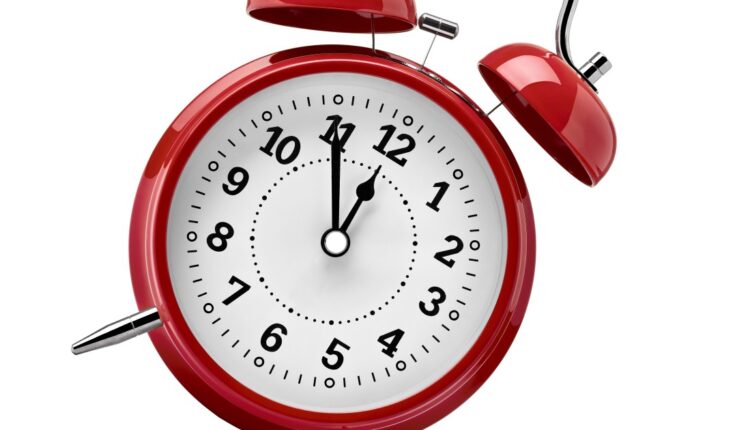When time goes by or by, you are not alone. It’s a COVID thing
Did this happen to you?
You call your dentist to schedule an appointment for your annual check-up and discover that you haven’t seen him since April 2019.
You’re getting dressed for a meeting when you suddenly realize that you’ve already attended it – two days ago.
You look up the calendar because you can’t remember what day of the week it is and then you find that you don’t know what week of the month it is either.
While COVID-19 is known to affect its victims’ senses of taste and smell, many of us who have managed to stay healthy in the past 16 months have developed a different type of symptom: an impaired sense of time.
To some, it feels like the pandemic has been going on for a decade or more.
For me it’s the opposite; time seems to have passed.
The months of fear and lockdown have compressed. I feel like I’ve just seen my dentist, and that was more than two years ago. My poor teeth.
“For humans,” says experimental psychologist Ruth Ogden, “time is not a clock. The time is super flexible. ”(One spontaneously thinks of Salvador Dali’s famous painting with hanging timepieces,“ The Persistence of Memory ”.)
I called Ogden, who teaches at Liverpool John Moores University, because she’s an expert on how people perceive time.
During the pandemic lockdown, she asked more than 600 people in the UK how they experienced the time. Only 20% felt that time passed normally. Of the others, 40% said time went faster and 40% thought it went slower.
Those who had satisfactory social contacts reported that time passed faster than those with an unsatisfactory social life. But why have some of us lost track of time completely?
Ogden said the pandemic has robbed us of what it calls “our temporal markers.”
“When you work at home, you can have lunch or go to bed whenever you want,” she said. “All the normal things that separate us every day and keep us in time are gone. What turned Saturday into Saturday was that you don’t go to work, you can sleep in, you don’t have to leave the house. “
Now every day blends into the next, a phenomenon that some have referred to as “fuzzy day”.
Ogden was on maternity leave with her third child when the pandemic first broke out. Understandably, her sense of time changed.
“It was basically hell,” she told me by phone on Thursday morning. “I couldn’t believe that the day only has 24 hours. It felt longer. “
That’s because time really flies when you’re having fun, she said, and it drags when you don’t. Nobody knows exactly why, ideally, it should be exactly the opposite. However, it is believed that emotions play a big role.
There can also be an evolutionary reason.
“Before we had clocks and survived in a more difficult world,” said Ogden, “it may have been an advantage to have a flexible sense of time. Time slows down for people when they think their lives are in danger. If you are a caveman and a Leo is about to attack you, you have an advantage in having more time to prepare your reaction. “
We know that the older you are, the faster it seems.
Eleven year old: why does it take so long before my birthday comes?
Me: Christmas again?
Researchers say this is likely just a function of how many years you’ve been alive. When you are 5 years old, one year is 20% of your total life. When you are 20, a year is only 5% of your lifetime. As you get older, a year seems to become a much shorter unit.
Ogden also said, “Children are busy all the time. A year seems to be an eternity because you have done so much. ”
Some researchers have noted a paradox in the perception of time during the pandemic.
In a BBC radio interview for a section titled “Why Time Flies (And How To Slow It Down),” Duke University physicist Adrian Bejan told host Armando Iannucci that many people experienced a slowdown in the early days of the pandemic the time we experienced because we had completely new experiences and behaviors and our daily lives felt unfamiliar.
Finally, he said, as masking and hand washing and working from home became routine, time quickened again. (Unless, of course, you were stuck indoors with three young children.)
A lasting effect of the pandemic on our perception of time could be that we simply value it more. After all, who wants to spend an hour and a half in the car on the way to and from work? Or an hour of preparation for the office when you can roll out of bed and turn on the computer?
Oddly enough, time isn’t considered a particularly sexy research topic in psychology circles.
“I’ve spent my entire career being told to do other research because nobody cares about time,” Ogden said.
Before the pandemic, she had given maybe three news interviews in her entire life.
In the last year she managed at least 50.
You could say their time has come.
@AbcarianLAT



Comments are closed.